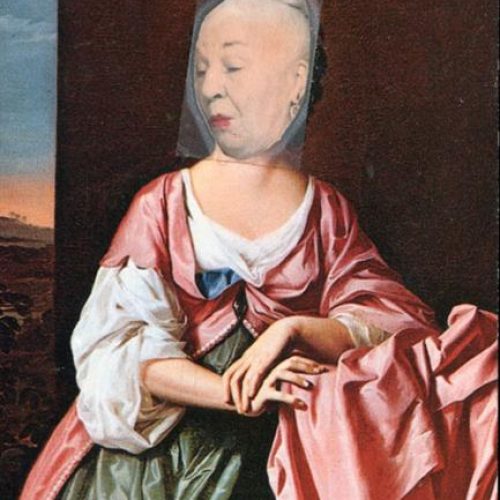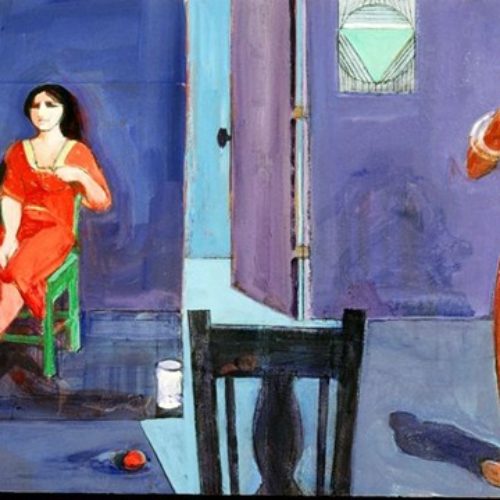It’s easy to categorize people into two groups: some of us scoff when we see others put on “fake” personas to get people to like them, and some of us, without seeing the problem, put on those “fake” personas on ourselves. The words fake, authentic, real, deceptive, two-faced, phony are salient in our culture, demonstrating the importance we feel towards being a true individual in a social world. We want honesty in our companions, and we need to be honest with ourselves.
I certainly feel an uneasiness and languor when talking to someone who sounds like they are trying to sell me something. But more than I want to end the interaction with these people, I want to find how I can honestly express myself to other people.
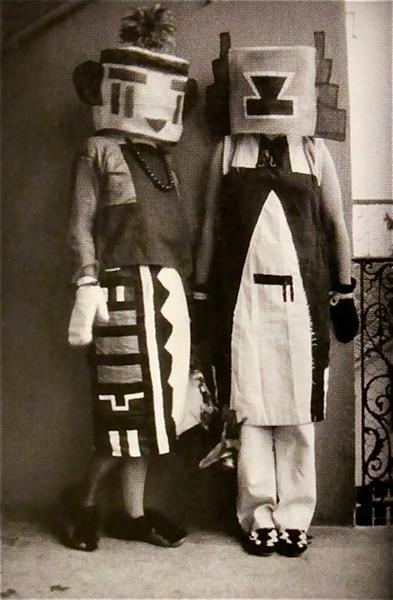
Admittedly, I too feel like I act falsely towards others, and surely some people could call be out on my falseness or even experience the same disinterest in fakeness that I experience with a salesman. This can happen even in moments I do not realize I am putting on a front. Brief interactions that do not reflect the way I feel, may or may not feel faked to me. On sad day, I still manage to smile at a kind stranger. And on my happiest days, I can still diminish my cheer to console a friend having a tough time.
I do not feel manipulative in these cases, but it will still occasionally feel a discordant inauthenticity making my outside appear unlike how the insides feel. But usually my outward appearance although modified for others, does not seem to feel fake, I have become habituated to my tricks, and no longer notice when I play them.
A False Dichotomy
The problem with this thinking of people in terms of fake and authentic is that it creates a false dichotomy, a prejudiced one. A cynical person might see all kindness as false, while the person who habitually does acts of kindness might see the cynic as wearing a pseudo-stoic persona. If we are going to call people fake, we must have good criteria for what we consider real.
All of us might contain “true self” and all of us present ourselves in strategic ways to others—we all wear masks. Everyone has some sort of image they are trying to impress onto others. This is a natural function of a self-consciousness animal, and to be unconcerned with how others perceive you would be nonhuman or sociopathic.
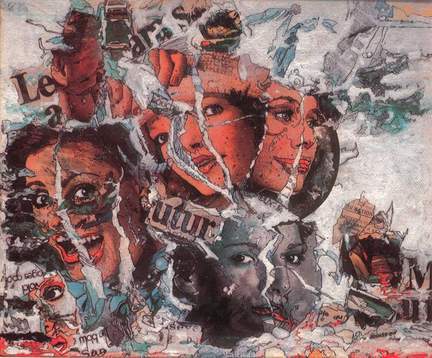
I caution us not to remove our social masks as if they were an evil. Because it is so difficult to tell what the mask is and what is real, we may find that what we thought was removing the mask was really replacing it with another one, possibly an even falser one. We see this in a pseudo-stoic who calls all acts of kindness phony. Believing that she has taken off her mask, she has quickly replaced it with bitter one. It may be to better understand how the mask functions to serve social relations, whether egotistically or altruistically (this hear dichotomy is also of little use once we understand the relationship of self and others). A better question is this: how do we design our masks to improve society and harmonize our lives and represent who we are and how we feel?
The Function of Masks and Why We Will Always Have Them
To understand the function of our masks in general requires a brief introduction to why we even have them, and how they developed.
In all society, humans benefit enormously from other humans. Even the rugged individual, no matter how self-reliant, no matter how tough, even if he was raised by a pack of wolves, can still only credit his survival to the help of another. There is no doubting this as we all had to somehow survive infancy when we couldn’t even walk or feed ourselves. The only thing we could do was display ourselves to others who had the power to care for us. During this time of dependency, and still during our times of interdependency, we learn to be so psychologically attuned to the perceptions of others. So much so, that even things which only have the potential of others seeing, is modified to be social more acceptable. Writing, even in a secret journal, can still be inhibited by the potential of someone reading it.
By modifying ourselves as objects perceived by others, we are technically self-objectifying. This word is often used negatively, but here we see it as neutral, as being both a way of deception and also the only way to represent something as good as Love itself. For there is no love without its mask-like representations. As Sartre puts it, “there is no love other than the deeds of love; no potential for love other than that which is manifested in loving.”
Creating a Wholesome Mask
I do not think we should consider a mask good or evil in itself, but rather, we can find the good or evil in the social relationship that it serves. We can also see if it is unwholesome, contradicting, and frustrating other needs within that individual. We do not always wear masks to “benefit” ourselves and relationships, sometimes we wear them to hurt ourselves and relationship. This is important to realize when we confront our own self-images.
We often think of the self-image we create in public as merely to make ourselves look good in front of others, but this is not always the case. We create a persona to get others to treat us the way we desire—often an unconscious desire. A lot of the time we want to be treated better, but many times we want to be treated in ways that might seem worse. We might not want to be considered in a friend group or we might not want to feel comforted or loved by someone due to a lack of security and trust. To achieve these goals, we may act self-destructively. Our masks give us a small insight into what we hope for in relationships.
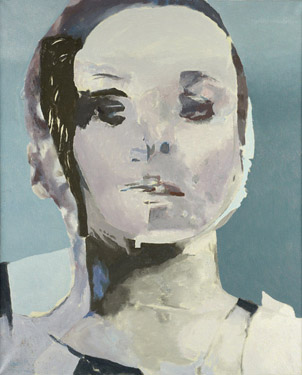
Sometimes these hopes contradict each other and are therefore unwholesome and incomplete. The hope we have for our relationships derive from deep and real causes which our masks interprets to be seen by others. We are always wearing a kind of mask, but the mask does not usually express all of our wishes. Desires that we cannot express often nag us and frustrate us as we solidify our personas, making it even harder to change.
The goodness (or even the “realness”) of the mask is the same as the wholesomeness of the motive that it serves. The feeling of inauthenticity may not be the perfect judge. We will always feel slightly awkward when learning a new skill. And if that new skill is how to truly talk to someone, and to listen empathically, it may feel fake, until your practice and improving relationships teach you that you were just learning the means for new self-expression and love.
In our “false” personas we express something real, but veiled. It is often a social need. A need to appear a certain way in order to create a relationship. Perhaps you are trying to appear stronger than the other, weaker, equal, attractive, intelligent. Perhaps you do these because you desire connection, affection, belonging, Eros, or maybe there is a higher love you seek. When we think about our masks as fake, we start to disparage those who are trying to show love by attributing their actions to egotistic motives rather than a need for connection. We do not need to make the motivations behind the mask so negative; otherwise, we will wear our mask, unaware that we are doing so, and become so cynical towards others’ acts that no one can find their way to express love and kindness to us. Making masks solely an evil is an easy way to criticize others without showing you the path of positive change.
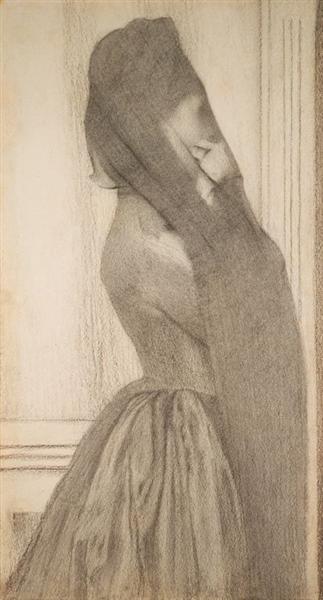
I sometimes struggle with a shy and laconic persona in some social situations. I do not think it represents who I am at heart, but rather a way I want some people to perceive me, or rather, not to perceive me at all. Perhaps it is a self-security I seek, a fear of opening up and answering vulnerable questions, and to not be the center of attention. But I also have tendencies to want attention for the work that I am proud of. This turns me into that cliché of a conflicted writer that feels he deserves attention but seems to do everything to avoid it. The shy mask that I wear does not serve many of my social needs and sometimes outright contradicts them. I now seek for a route that allows for both the humility that I already value and the confidence to add to a conversation. I am sure whatever way I practice this new skill will feel fake, but I know that it will be truer to myself.
Search for more wholesome representations of yourself. Commit yourself to new practices of expression, but do not mistake the practice for the true self. The mask you wear is a medium for social connection, but it does not tell you directly what the connection you seek is. What needs have you neglected? What does your mask inhibit? Try on a new self, just for a little while, just to see.


